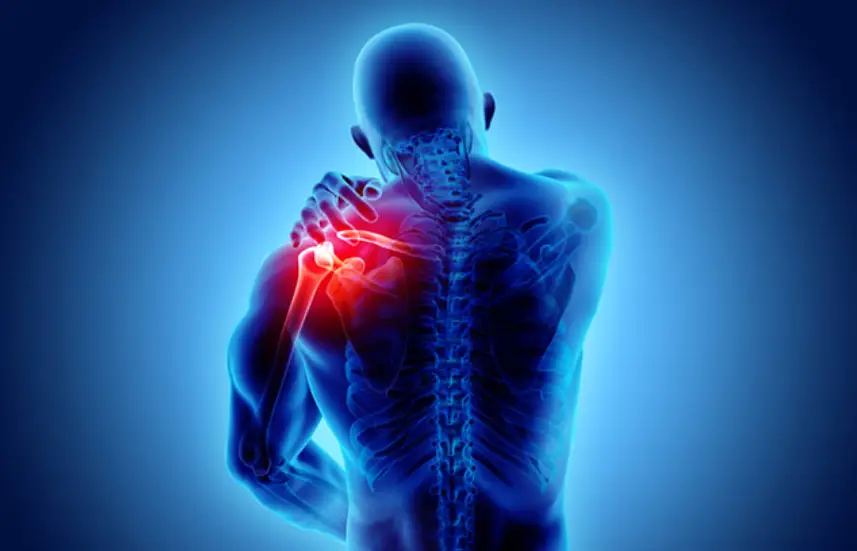The shoulder complex is susceptible to a variety of conditions causing pain and dysfunction. These include impingement syndrome, rotator cuff injuries, and frozen shoulder. Instability issues like dislocations and arthritis further impact function. Inflammation of tendons and bursae, along with labral tears, contribute to discomfort. Conditions like thoracic outlet syndrome and nerve entrapment add complexity. Rehabilitation following surgeries is often necessary. Management involves addressing underlying causes, physical therapy, and ergonomic adjustments to alleviate pain and restore shoulder function and mobility.

We address additional Shoulder issues listed below.
- Shoulder impingement syndrome
- Rotator cuff injuries (e.g., rotator cuff tears, tendonitis)
- Frozen shoulder (adhesive capsulitis)
- Shoulder instability (e.g., shoulder dislocation, subluxation)
- Shoulder arthritis (e.g., osteoarthritis, rheumatoid arthritis)
- Bicipital tendonitis (inflammation of the biceps tendon)
- Subacromial bursitis (inflammation of the bursa in the shoulder)
- Shoulder labral tear (e.g., SLAP tear)
- Acromioclavicular (AC) joint injuries (e.g., AC joint separation)
- Thoracic outlet syndrome (compression of nerves or blood vessels in the shoulder region)
- Scapular dyskinesis (abnormal movement of the shoulder blade)
- Shoulder muscle strains (e.g., deltoid strain, supraspinatus strain)
- Shoulder stiffness and reduced range of motion
- Shoulder tendonosis (degeneration of shoulder tendons)
- Shoulder fractures (e.g., proximal humerus fracture)
- Shoulder bursitis (e.g., subdeltoid bursitis)
- Shoulder nerve entrapment (e.g., suprascapular nerve entrapment)
- Shoulder pain associated with poor posture or overuse
- Referred shoulder pain from cervical spine or thoracic spine conditions
- Post-operative rehabilitation following shoulder surgeries (e.g., rotator cuff repair, shoulder arthroscopy)
